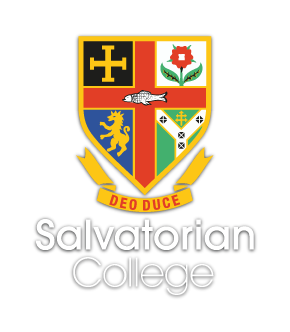Catholic Life
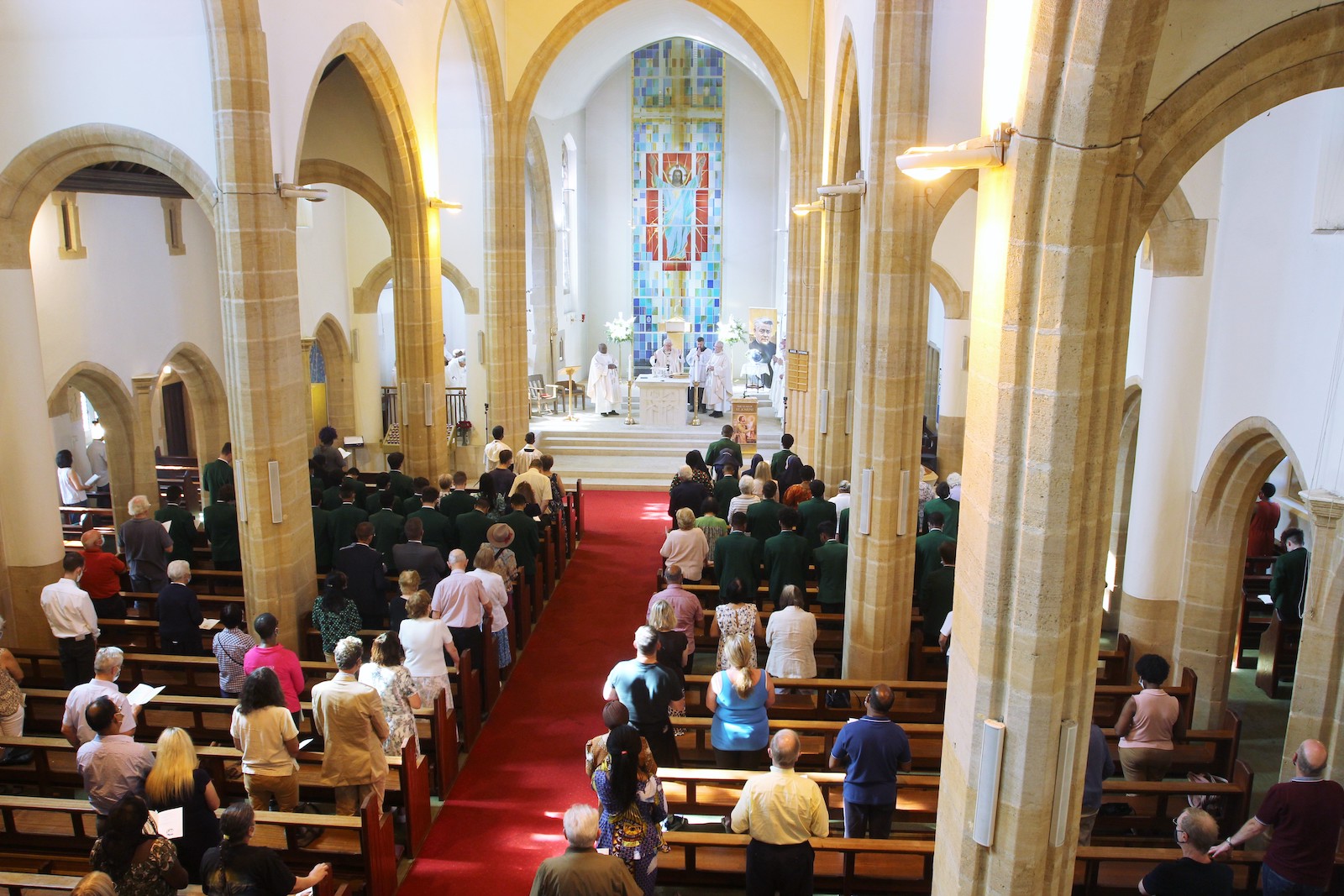
School life at Salvatorian College is suffused with our Catholic ethos. It is an ethos developed from our foundation in 1926 by the Society of the Divine Saviour (Salvatorians). Today we build on our strong foundations, holding a confident belief in the relevance of education set within the context of Gospel values and Catholic social teaching.
The school acts at all times as a witness to the Roman Catholic faith; however, we very firmly believe that we are a catholic school in the universal sense also – we believe all are welcome in our community, regardless of their faith background.
The school is part of the structures of the Roman Catholic Church and is a Catholic school in accordance with Canon Law; a core function of the school is to assist Catholic parents in fulfilling their obligation to educate their children in accordance with the principles and teachings of the Church. We provide an environment which will encourage and support the spiritual, physical, moral and intellectual development of the child and help him to grow towards full Christian maturity; we provide a wide and rich range of educational, cultural and spiritual experiences which encourage him to discover and develop his potential to its maximum and to strive for excellence in all that he does.
Chaplaincy is provided by the Salvatorian Fathers. There is a full programme of prayer and litrugical celebration which underpins the school’s routines and marks the litrugical seasons and important feasts in the church year. Each pupil can expect to attend Mass with his form or year group at least once per half term. Certain pupils showing aptitude and interest are carefully instructed in serving and reading at Mass, and a team of Liturgical Prefects is elected each year. The whole school attends Mass in St Joseph’s Church on the Holy Days of Obligation which fall during term, and on other important Feast Days. The school’s Annual Carol Service is held at St Joseph’s Church towards the end of the Autumn Term.
Pupils at Salvatorian College come from a variety of faith backgrounds. Pupils who are not Catholic are expected to demonstrate the virtues of tollerance and respect by sitting in on acts of worship (approximately one per half-term), though they will not be made to participate directly. We are not in a position to make separate arrangements for individual pupils.
Prayer & Liturgy
Regular liturgical celebration and prayer are at heart of school life and our daily routine. The Blessed Francis Jordan Chapel provides a beautiful and peaceful setting for prayer and sacramental liturgies for up to 70 pupils. The Blessed Sacrament is reserved so it can be said that Christ is, truely, at the centre of our school.
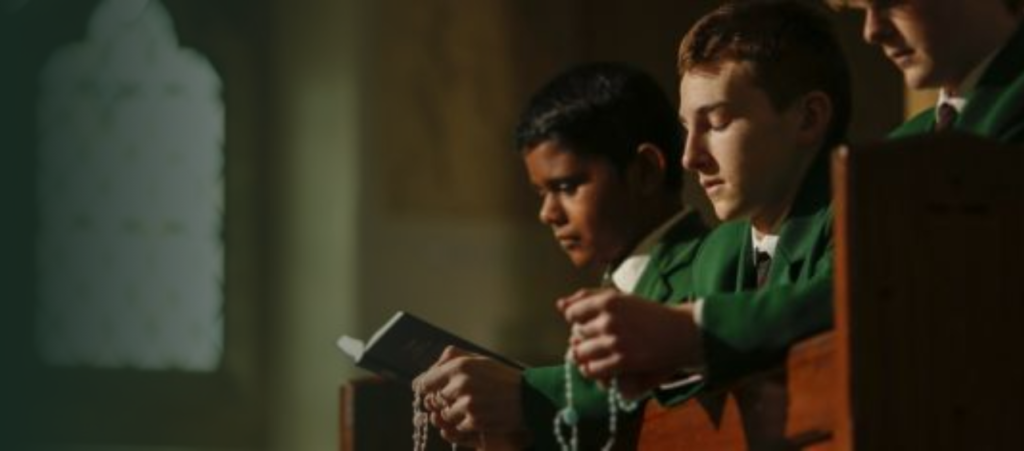
Chapel Liturgies
| Form Group Masses | 8.30am - Thursday |
| Year Group Masses (St Joseph's Church) | 10am - First Tuesday of each half-term |
| Moment for Jesus | 2.00pm - Every day |
| Whole-school Mass | Feast Days & Holy Days of Obligation |
Our values are based on the Eight Beatitudes - blessings recounted by Jesus in the Sermon on the Mount recorded in the Gospel of Matthew.
INTEGRITY
We are honest and demonstrate strong moral principles.
Jesus said: ‘Blessed are the poor in spirit, for theirs is the kingdom of heaven.’
COMPASSION
We show care and concern for the sufferings or misfortunes of others.
Jesus said: ‘Blessed are those who mourn, for they shall be comforted.’
HUMILITY
We are not proud because we are aware of our own bad qualities.
Jesus said: ‘Blessed are the meek, for they shall inherit the earth.’
JUSTICE
We strive to be fair and reasonable.
Jesus said: ‘Blessed are those who hunger and thirst for righteousness, for they shall be satisfied.’
FORGIVENESS
We forgive others for their offences, flaws or mistakes.
Jesus said: ‘Blessed are the merciful, for they shall obtain mercy.’
HOLINESS
We aim to lead our lives informed by Gospel values.
Jesus said: ‘Blessed are the pure in heart, for they will see God.’
TOLERANCE
We accept behaviour and beliefs that are different from our own, even if we do not agree with them.
Jesus said: ‘Blessed are the peacemakers, for they shall be called Children of God.’
SERVICE
We go out of our way to help others whenever we can.
Jesus said: ‘Blessed are those who are persecuted for righteousness’ sake, for theirs is the Kingdom of Heaven.’
Catholic Social Teachings at Salvatorian College
What is Catholic Social Teaching?
Catholic Social Teaching (CST) is based on a tradition of episcopal and papal writings on political, economic and social issues facing our time.
An essential part of the Catholic faith, the key values of Catholic Social Teaching, are found at the core of the Gospel. The key themes of CST are:
- Human Dignity
- Community & Participation
- Care for Creation
- Dignity in Work
- Option for the Poor
- Solidarity
Our Catholic Social Teaching Themes

Human Dignity
All people (regardless of gender, disability, age, race, ethnicity, nationality, culture, sexual orientation, political or religious belief) are part of the human family. Here at Salvatorian College we celebrate diversity, and the strength it gives us, as we come together and seek justice for all. Since we believe each person is made in the image and likeness of God, and has inherent dignity, we support charities that we believe support human dignity, such as St. Luke’s (our local hospice here in Harrow). We endeavour to treat each other with love and respect at all times. We actively celebrate our diverse community (e.g. prayer, involvement in assembly) and we learn from our mistakes. In the classroom we are respectful of the views of all learners.

Care for Creation
Stewardship and caring for the earth are integral to our task of tackling climate change and caring for our common home. Here at Salvatorian College we have an eco-group working hard to raise awareness of the problem and creating greener spaces around the college site, as well as affecting change locally, nationally and globally. We also seek to keep the College site clean and tidy.

Preferential Option for the poor
God wants us to help people who are poor, who don’t have enough food, a safe place to live, or a community; as such, we support charities that help the poor, we collect for the needy and send food parcels to those in our community who need extra support. At Christmas we provide hampers for the poor. We endeavour to show compassion to others, to make generous contributions for fundraising and to give generously of our time as well as donating second hand uniform.

Participation & Subsidiarity
Together, we can confront the problems of our world and seek solutions that are truly effective. We listen to others as they speak for themselves, help them to participate if they need such help and speak-out boldly on their behalf when it is right to do so. Here at Salvatorian College we support campaigns that we believe can effect change and support charities such as CAFOD which seek social justice. We attend events designed to empower others. In class, we listen and are accepting of opinions that are different from our own/respecting other people’s points of view.

Solidarity
God made everyone, so we are all brothers and sisters in God’s family. Wherever we live we are called to be part of The Body of Christ and be attentive to the needs of others. By coming together in hope as individuals, families, communities, organisations and nations, we can achieve transformative change for the common good. Salvatorians respond to the needs of others by coming together in form time, with form representatives. These then meet in the School Council to bring about change in the College. Our boys come together, throughout the day and more formally, to pray for the needs of others and listen to positive messages.
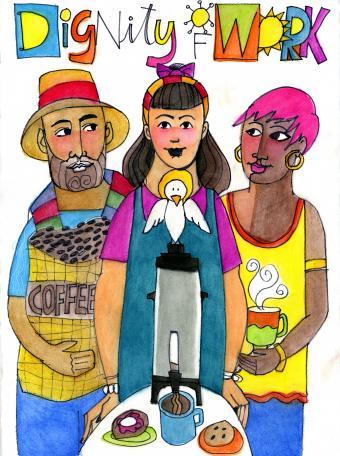
The Rights of Workers
The economy must serve people, not the other way around. Work is more than a way to make a living; it is a form of continuing participation in God’s creation. If the dignity of work is to be protected, then the basic rights of workers must be respected the right to productive work. Here at Salvatorian College we treat all workers in our school with respect, we listen to staff and follow instruction. We will endeavour to carry these values into our future place of work by becoming leaders of good influence.
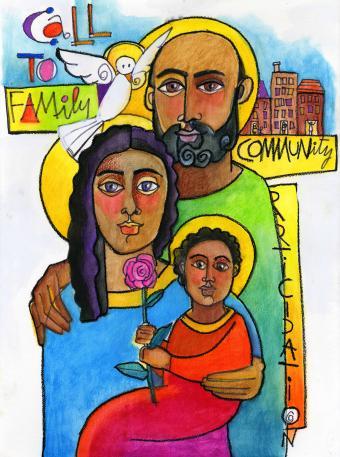
Community & Participation
God made us to be part of communities, families and countries, so all people can share and help each other.
In the Acts of the Apostles, St. Paul describes what community looks like: Disciples of Christ shared their food and possessions to make sure the neediest among them were taken care of (Acts 2:42–47). These members of the early Church modelled a society in which all members of a community care for one another. Here at Salvatorian College we recognise that marriage and family are foundational communities of society and, as such, we promote marriage and the family and consider the role of community in year 7 & 8 retreat. We support charities, as we believe that we are called to do so.
Society of the divine Saviour
The Society of the Divine Saviour, popularly known as the Salvatorians, is an international, religious, congregation of priests and brothers in the Catholic Church, founded in Rome, December 8, 1881, by the Father Francis Mary of the Cross Jordan.
Our official title is the Society of the Divine Saviour and our main purpose is to bring people everywhere to a greater knowledge and love of our Divine Saviour. This means that we are an international missionary order in the very broadest sense.
The purpose of the Society is to strengthen, to defend and to spread the Catholic faith everywhere in so far as this is committed to it by Divine Providence. Therefore, by exercising this ecclesiastical teaching function in word and writing, it intends to achieve the end that all people might know more and more the one true God and Him whom He sent, Jesus Christ.
Rule from 1882
We also believe it is important to use all the ways and means that Christ inspires to spread his Good News. For this reason Salvatorians are to be found using their talents in all sorts of capacities in parishes, missions, schools, universities, hospitals and many other situations throughout the world.
The British Pro-province consists of thirty members living and working in Britain and Ireland but coming from several different countries.
Our Motherhouse is in Rome near St Peter’s Square and in a special chapel there the tomb of our Founder, Father Jordan, is located. There are about 1,200 Salvatorian Fathers and Brothers worldwide.
For further information on the Society of the Divine Saviour http://www.sds.org/
Father Richard Mway – Provincial & Parish Priest, is the Vice Chair on the school Governing Body.
St. Joseph's Parish
The Parish of St Joseph’s is staffed by the Salvatorians, a Roman Catholic Religious Order founded in Rome in 1881 by the Venerable Francis Jordan.
Father Jordan also founded the Sisters of the Divine Saviour.
For further information please see http://www.catholicwealdstone.org/
Our Patron Saints
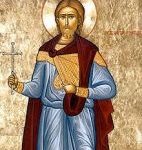
Saint Alban
Saint Alban was a Romano-British citizen of the third century in the Roman city of Verulamium (now called St Albans). During his lifetime, Christians began to suffer persecution. Alban met a Christian priest fleeing from the Romans and sheltered him in his house for a number of days. The priest Amphibalus prayed and kept vigil day and night, and Alban was so impressed with the priest’s faith that he asked to be taught by the priest. He converted to Christianity just before the authorities came to arrest the fugitive priest. Alban, inspired by his new-found faith, exchanged clothes with Amphibalus, allowing him to escape. Consequently, Alban was arrested and brought before the city magistrate. As Alban refused to pay homage to Roman gods, the magistrate ordered that Alban should receive the punishment due to the priest. He was taken up a hillside to a site of execution where he was beheaded. Despite escaping, Amphibalus too was later arrested and martyred at Redbourn, a few miles away.
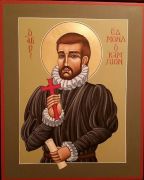
Saint Edmund Campion
Saint Edmund Campion was an English priest who belonged to the ‘Society of Jesus’, more commonly known as the ‘Jesuits’. Campion was alive at a time where Roman Catholicism was banned in England. Despite the ban, he continued to be a faithful priest to his people, rejecting the validity of the Anglican Church, and conducting an underground ministry. Campion was eventually arrested by priest hunters, convicted of high treason, and hung, drawn and quartered at Tyburn, close to modern-day Marble Arch in London.
Because he died defending his faith, St Edmund Campion is remembered as one of the Forty Martyrs of England and Wales, having been canonised in 1970 by Pope Paul VI.
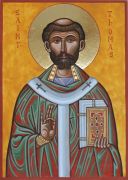
Saint Thomas Becket
Saint Thomas Becket was born in around 1120, the son of a London merchant. He was well-educated and quickly became an agent to Theobald, Archbishop of Canterbury, who sent him on several missions to Rome. Becket’s talents were noticed by Henry II, who made him his chancellor and the two became close friends. When Theobald died in 1161, Henry made Becket archbishop. Becket transformed himself from a pleasure-loving courtier into a serious, simply-dressed priest.
The king and his archbishop’s friendship was put under strain when it became clear that Becket would now stand up for the church in its disagreements with the king. In 1164, realising the extent of Henry’s displeasure, Becket fled into exile in France, and remained in exile for several years. He returned in 1170.
On the 29 December 1170, four knights, believing the king wanted Becket out of the way, confronted and murdered Becket in Canterbury Cathedral.
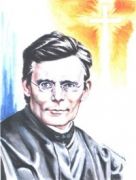
Blessed Francis 'Mary of the Cross' Jordan
Fr Francis ‘Mary of the Cross’ Jordan was a German Roman Catholic priest and the founder of the Society of the Divine Savior, commonly called the Salvatorians. His life is currently under review by the Holy See, for his possible canonization. During this period, he had a growing conviction that he was being called by God to found a new apostolic work in the Church, which had as its goal the unification of groups of priests and laity in spreading and defending the Catholic faith throughout the world. This conviction became even stronger during a trip to the Middle East in 1880. After returning to Rome, Jordan started implementing his idea of founding a community of members under religious vows and laypeople. This would be organized into three groups, called “grades”: the first would be those who committed to leave everything and, living in community, devote their whole lives to the mission of the organization; the second was to be for academics, who spread the faith by publications; and the third for those laypeople who, remaining in their families and within the reality of their everyday life, would proclaim the Savior through the witness of a good Christian life.
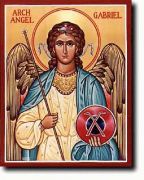
Saint Gabriel the Archangel
In Christian tradition Gabriel the archangel is the angel of mercy mentioned by name in the bible. Spirits who proclaim messages of supreme importance are called archangels and so it is fitting that the archangel Gabriel was sent to the Virgin Mary to announce the greatest of all messages; the birth of our Saviour, Lord Jesus Christ. During many of the announcements attributed to Gabriel in religious texts, Gabriel presents a challenging message with confidence, authority, and peace, urging people to trust in God’s power. The messages that God assigns the archangel Gabriel to deliver, often extend people’s faith in a significant way.
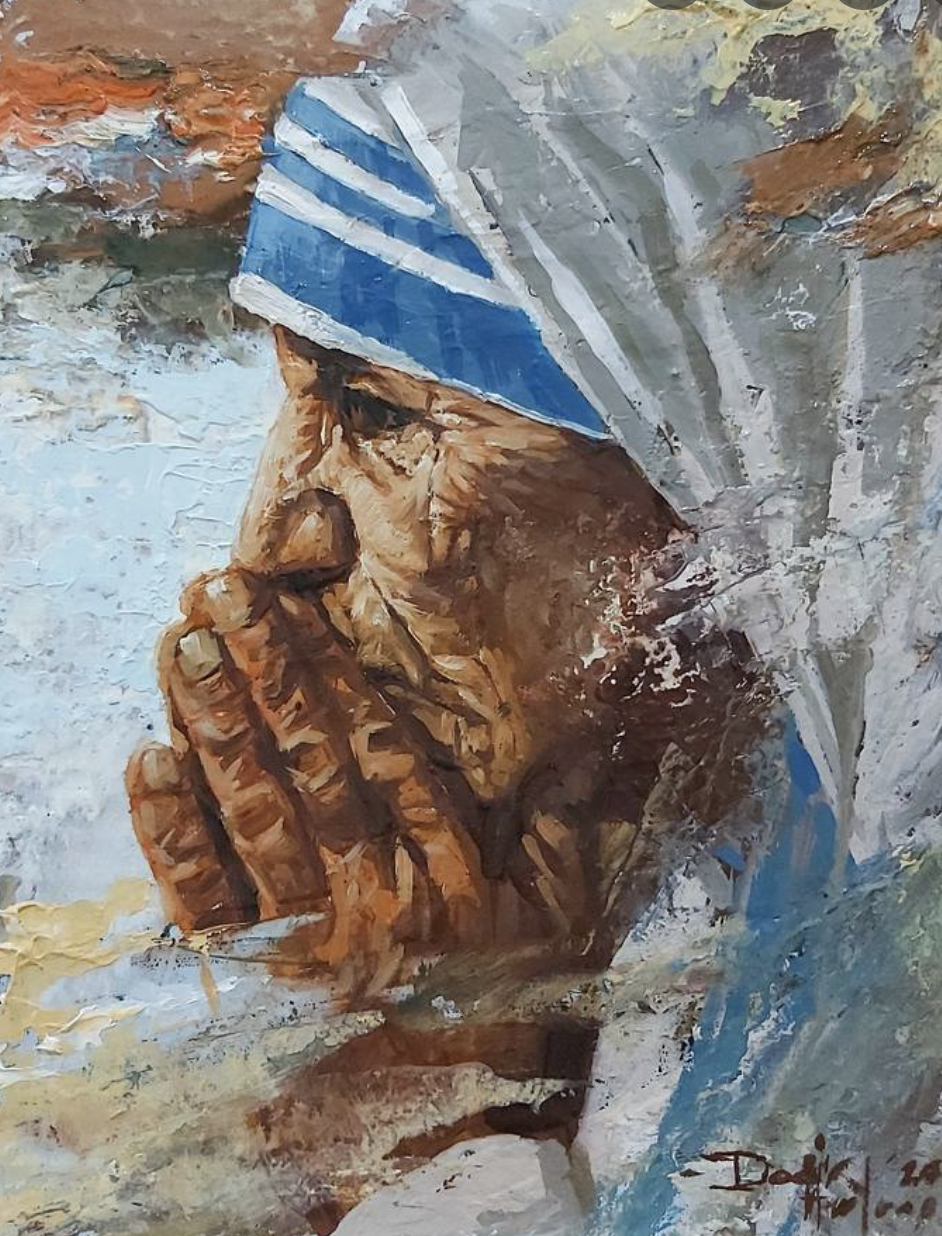
Saint Theresa of Calcutta
Saint Theresa of Calcutta, better known as ‘Mother Theresa’, was born in Macedonia. Having taught in India for 17 years, Mother Theresa felt that God was calling her to devote her life to caring for the sick and the poor. She founded the Order of the Missionaries of Charity, which quickly established a hospice; centres for the blind, aged and disabled; and a leper colony. In 1979, Mother Theresa received the Nobel Peace Prize for her humanitarian work. She died in 1997 and in December 2015, Pope Francis recognized a second miracle attributable to her, which cleared the way for her to be declared a Saint on September, 4 2016.
